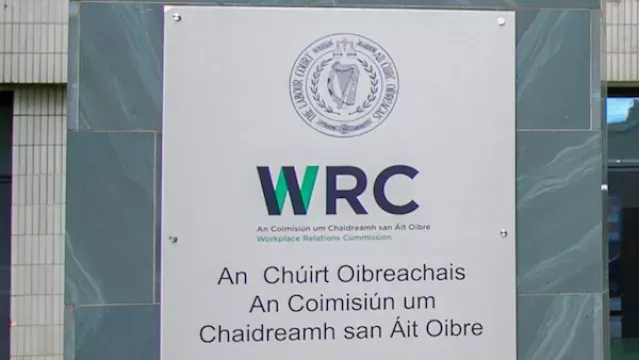Guidelines on the Wage Subsidy Scheme (EWSS)
GUIDELINES ON THE EMPLOYMENT WAGE SUBSIDY SCHEME (EWSS)
Guidelines were released on the 14th August for the new Employment Wage Subsidy Scheme (EWSS), which is an economic support for businesses. There is a possibility there may be changed going forward and we will update you as soon as any are announced This scheme will run from the 1st September until the 31st March 2021.This scheme replaces the Temporary Wage Subsidy Scheme (TWSS) which ceases on 31 August 2020.
Eligible employers claiming TWSS in respect of eligible employees may continue to claim TWSS in respect of these employees for pay dates up to 31 August 2020. The following questions provide a summary of the key aspects of the new scheme and how it will operate;
When can I claim the EWSS for employees?
If on the TWSS from 1 September 2020.
What does the Scheme provide for?
The scheme has two elements:
• It provides a flat-rate subsidy based on the numbers of paid and eligible employees on the employer’s payroll; and
• It charges a reduced rate of employer PRSI of 0.5% on wages paid which are eligible for the subsidy payment.
Does the EWSS impact employee entitlements or the employment contract?
The scheme does not affect any legal obligations that the employer may have to their employee as regards any terms, conditions or employment entitlements.
How will the scheme be administered?
Like the TWSS it will be administered by Revenue on a “self-assessment” basis. Proof of eligibility will not be sought at the registration stage. Revenue will review eligibility in the future, based on risk criteria. Employers should ensure to retain their evidence/basis for entering and remaining in the scheme.
When and how will the subsidy be paid?
Unlike the TWSS the subsidy will be paid by credit transfer directly to the employer, once a month in arrears, as soon as practicable after the 14th of the following month (Return due Date).
What do employers require in order to be eligible?
Tax Clearance
Employers must possess a valid tax clearance certificate to enter the EWSS and maintain tax clearance for the duration of the scheme, provided all other conditions are met. Employers can check their current tax clearance status through ROS. Further information can be found at
In addition, for the duration of the scheme, an employer must be able to demonstrate that:
• their business is expected to experience a 30% reduction in turnover or orders between 1 July and 31 December 2020 looking at the period as whole rather than on a monthly basis; and
• this disruption is caused by COVID-19.
This reduction in turnover/orders is relative to;
• the same period in 2019 where the business was in existence prior to 1 July 2019; or
• where the business commenced between 1 July and 1 November 2019, the date of commencement to 31 December 2019; or
• where a business commenced after 1 November 2019, the projected turnover or orders for 1 July 2020 to 31st December 2020.
Subsidies received are taxed on the employers, as part of their trading income, but are ignored in the calculation of the 30% reduction in turnover.
How does the Self-Assessment work?
Employers must undertake a review on the last day of every month (other than July 2020 and the final month of the scheme) to ensure that they continue to meet the above eligibility criteria.
When undertaking a review employers need to include all sources of trade income specifically including sales, donations, State Funding etc.
What do employers do if they no longer qualify?
They must deregister for EWSS through ROS with effect from the following day (that being the 1st of the month) and cease claiming the subsidy.
If an employer becomes aware prior to the end of the month that they will no longer meet the eligibility criteria (e.g. unexpected donation or grant received at the start of a month), they should deregister immediately and cease to claim subsidies.
Employers will not be required to repay subsidies that were correctly claimed prior to deregistration.
Can I reregister after being deemed ineligible?
If circumstances change and the employer is again eligible, they can reregister and claim from the date of reregistration.
It is not possible to backdate the claim to include the period of deregistration.
Who is an eligible employee?
Eligible employees include;
Employees who are on the payroll and in receipt of gross wages of between € 151.50 and € 1,462 per week during the period of the scheme (1 September 2020 to 31 March 2021).
There are no restrictions on taking on new employees or movement of employees under the Transfer of Undertakings (Protection of Employment) (TUPE) legislation, provided such recruitments/movements are undertaken for legitimate business purposes and not with the intention to maximise subsidy claims.
Certain categories of employees are specifically excluded in legislation, those being:
• Proprietary Directors. However, there may be exceptions for some proprietary directors, details of which will be provided in due course.
• Connected Parties who were not on the payroll and paid at any time between 1 July 2019 and 30 June 2020. (Connected parties include brothers, sisters, linear ancestors, linear descendants, aunts, uncles, nieces, nephews of an individual and their spouse.)
A person is connected to a company if they alone or together with their connected parties can exercise or acquire control of more than 50% of the issued share capital or voting rights, the greater part of distributions, or the greater parts of assets distributed on winding up.
Additional employees for whom subsidy should not be claimed include:
• employees working in a business division or related group entity not expected to suffer a 30% reduction.
• employees employed otherwise than as part of a business e.g. domestic employees such as childminders, housekeepers, gardeners etc.
Safeguards will be included to minimise abuse.
What is the weekly subsidy rate?
The rate of weekly subsidy the employer will receive per paid eligible employee is as follows:
Employee Gross Weekly Wages Subsidy Payable
Less than €150.50 Nil
From €151.50 to €202.99 €151.50
rom €203 to €1462 €203.00
More than €1462 Nil
For pay periods other than weekly, gross weekly wage will be calculated by dividing the returned gross wage by the number of insurable weeks included (subject to maximum divisors set by the system).
Gross wage, as reported on the payroll submission, includes notional pay and is before deduction of items such as pensions and salary sacrifice.
It excludes any DEASP benefits which employees may have mandated to be paid to the employer (e.g. illness/maternity/adoptive, etc.). Such monies should continue to be included in non-taxable pay as normal and are ignored when calculating the amount of the subsidy to be paid.
Can employer’s claim monthly subsidy payments?
In order to provide monthly subsidy payments to employers, EWSS can only be claimed in respect of payroll submissions of at least a monthly pay frequency i.e. quarterly/yearly/biyearly/other claims will not be processed.
How does the Registration Process work?
A new registration process needs to be followed for EWSS.
Employers must file their payroll submissions electronically through Revenue Online Service (ROS).
Eligible employers will be able to register for EWSS through ROS from 18th August. The date of registration cannot be back dated prior to the date of application and does not need to be back dated if a claim will be submitted in respect of payments in July/August.
Employers will be required to declare that they are eligible for the Employment Wage Subsidy Scheme and that they agree to the Terms and Conditions of the scheme and are aware of the consequences of non-compliance.
Registration applications will only be processed if the employer is registered for PAYE/PRSI as an employer, has a bank account linked to that registration, and has tax clearance.
Where an employer files an EWSS payment submission without first registering for EWSS, it will be rejected in full.
As registration cannot be backdated, its imperative registration is undertaken prior to the first pay date in respect of which EWSS is being claimed.
How will the subsidy operate for payroll purposes?
EWSS will re-establish the normal requirement to operate PAYE and normal PRSI on all payments. This includes the regular deduction and remittance of income tax, USC and PRSI at the normal rates.
Employer PRSI will be reduced to 0.5% in respect of employees for whom a subsidy is payable.
Employers will continue to operate payroll as normal and report employer and employee PRSI deductions based on the employee’s appropriate existing PRSI classes.
The employer must include ‘EWSS’ as the payment type in the ‘Other Payments’ section on the payroll submission and input the digit zero or one cent as the amount of other payment made.
Employers should not include the EWSS ‘Other Payment’ details on the payslip they provide to the employee. Where an employer makes a submission to Revenue with ‘EWSS’ included in the other payment field for employees who are not eligible for a subsidy, a message will issue through ROS upon submission requesting that this does not occur in the future.
Such payslips will also not be eligible for the reduced rate of PRSI and will be excluded from the PRSI credit calculation. On receipt of an eligible EWSS payroll submission from a registered employer, Revenue will calculate the subsidy payable by reference to the gross wage, pay frequency and insurable weeks reported on the payslip.
If an employer does not have tax clearance on the return due date, their subsidy payment will not be processed and once they have obtained tax clearance, they will need to contact the National Employers Helpline to request that the refund issue.
Employers are required to make submissions to Revenue by the pay date. To avoid any delay in payment of subsidy to an employer or posting of the employer PRSI credit, submissions need to be made by the return filing date of the relevant month e.g. September pay dates need to be filed by 14 October to be included in the October payment. Any amendments or submission of EWSS payroll after the return due date will be subject to a review by Revenue which will unavoidably lead to a delay in payment.
How will the subsidy be processed by Revenue?
At the end of every month, Revenue will process the payroll submitted and post a statement into the ROS inbox of employers by the 5th of the following month, setting out the amount of subsidy due to be paid to the employer. This will allow time for necessary amendments to be made, prior to the return filing date.
After the return due date, the system will process the claim and make the payment into the designated bank account as soon as practicable thereafter.
How will the Reduced Employer PRSI rate of 0.5% be processed?
As employer’s PRSI in their payroll submission will be at a higher rate than the 0.5% available under the scheme, Revenue will calculate a PRSI ‘credit ’due to the employer by recalculating employer PRSI using the scheme rate of 0.5% (where employer PRSI returned is more than 0.5%) and subtracting this from employer PRSI due as reported in the submission.
On the 14th of the following month (Return due Date), Revenue will post the PRSI ‘credit ’ that is due and payable for that month to the employer’s monthly payroll return, reducing the overall payroll taxes balance due.
To avoid any delay in posting the employer PRSI credit, submissions need to be made by the return filing date of the relevant month e.g. September pay dates need to be filed by 14 October to be included in the October calculation. Any amendments or submission of EWSS payroll after the return due date will be subject to a review by Revenue which will unavoidably lead to a delay in the posting of the credit.
Can I claim subsidy for employees who were ineligible for the TWSS during July and August?
In recognition of the exclusion from TWSS of new entities, seasonal employees and new hires, EWSS eligible employers, in respect of eligible employees, can backdate a claim for EWSS to 1 July 2020 in certain limited circumstances as follows:
• The employer was not eligible for TWSS; or
• employees who were not eligible for TWSS. (Employees were excluded from the TWSS because their net wages exceeded the tapered amounts allowed under the scheme, are not eligible)
These will be dealt with as part of a ‘sweepback ’with payment made in September.
How to make claims for July/August?
• Before 5 September, employers will electronically provide required information including; employee name, PPSN, employment ID, payment frequency, insurable weeks, commencement date, etc., using a template which will be available on revenue.ie in late August,
• Revenue will upload this information and calculate the total subsidy due to be paid.
• The subsidy will be paid into the designated bank account as soon as practicable after 14 September.
• No additional submissions or amendments will be processed on or after 14 September in respect of July/August.
The reduced rate of employers PRSI of 0.5% is also applicable to eligible payments in July and August 2020. Revenue will calculate the difference between the employer PRSI returned and 0.5% and overnight on 14 September, will credit any excess.
Will compliance checks will be carried out?
To ensure compliance, Revenue will undertake assurance checks in relation to the scheme.
What records are required?
All records relating to the operation of the scheme must be retained by employers, specifically including those supporting the expectation that turnover or customer orders will reduce by the requisite 30%, together with details of the monthly reviews that must be undertaken.
What if an employee has two employers?
Some employees have more than one employment with more than one eligible employer.
In such instances, each employer makes its own claim (where appropriate) for the employee.
Where employees are included in more than one payroll by an employer (e.g. on a weekly payroll for wages and monthly payroll for bonuses), subsidy entitlement must be calculated by aggregating monies paid under both payrolls.
Where additional payments are being made for the same payment date whereby two payslips are being processed for the same pay date, these also must be aggregated when calculating subsidy entitlement.
Debt Warehousing
Under the Financial Provision (Covid-19) (No.2) Act 2020, debt associated with the COVID-19 crisis may be deferred or ‘warehoused’.
The scheme allows for the deferral of unpaid VAT and PAYE (Employers) debts arising from the COVID-19 crisis for a period of 12 months after a business resumes trading.
The debts will be addressed by way of a phased payment arrangement at a lower interest rate of 3% per annum which represent a significant reduction from the standard rate of 8% or 10% per annum depending on the particular tax owed.
The period covered by the debt warehousing scheme is the time during which the business was and is unable to trade due to the COVID-19 related restrictions and includes two months after the business re-commences trading.
The Act also introduced a reduced interest rate of 3% per annum to apply to tax debts that cannot be warehoused, i.e. older debts not associated with COVID-19.
The reduced rate is available across all tax types where the agreement is made by 30 September and applies from the date of the agreement.
Businesses with warehoused debts or debts covered by a Phased Payment Arrangement (PPA) can, provided all other conditions are met, participate in the EWSS. Further information on the above initiatives can be found at;
Revenue recommends that employers engage with these initiatives as soon as possible by making contact with the Collector General’s Division to ensure they have all returns filed and payment arrangements in place. Once this is done, tax clearance should be applied for through ROS.
This is required to facilitate registration for EWSS and timely receipt of subsidies.
Full details of the guidelines released are available on the revenue website;
https://www.revenue.ie/en/corporate/communications/documents/ewss-guidelines.pdf
FURTHER DETAILS ON THE UPDATE OR ABOUT OUR SERVICES MAY BE OBTAINED FROM:
JOHN BARRY/TARA DALY/ HUGH HEGARTY AT TEL: 01 8870690












